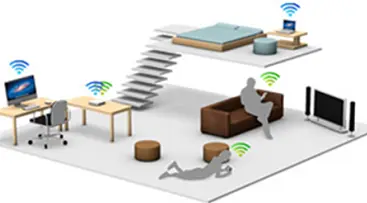The title sounds like bitching but this post is more a request for advice. I’ve wanted to pull the trigger for six months now on buying my own router/modem and WAPs. I have a google mesh and it sucks, and I want to build a nas w/ plex and add a firewalla (or similar) to remove ads and manage my network. I’ve learned a lot already, but lately am hung up on the specifics. I honestly have no idea what equipment to buy to accomplish my goals. I don’t know the pitfalls of x vs y router, or when I’m spending $300 and only needed to buy an $120 part because I don’t need certain features, etc. I was looking around for something like the PCMR logical increments guide, but that doesn’t seem to be a thing in this world. My hope is to spend maybe 1k or so and get started. Can I get some direction from you kind folk?
Addendum info: My home isn’t wired for the WAPs, but I have a few hundred feet of cat6a cable at my disposal. Internet only comes in at one port upstairs in a corner over the garage. I do happen to own a 24 port switch and an old PC I plan to use to run the NAS. It’s about a 2k sq. foot home, but fairly spread out.
Hang in there. What you’re looking for is a solved problem, the only issue is in figuring out the path for you to get the necessary knowledge/expertise to address this.
A lot of the people on this subreddit likely have training in picking hardware for dayjob (whether in networking or something else), and simplifying/decomposing the problem to reduce the exploration space.
You might consider also asking around friend network or on NextDoor for some referrals / people with the DIY knowledge. I’ve been happy to consult for free for friends.
Thank you, some encouragement was very welcome.
You don’t mention what level of expertise you’ve got for this, or if there’s anyone you can reach out to for assistance. I think guyman384’s advice to treat this as two projects (wiring infrastructure, the server(s).
You didn’t mention how many floors to the home. If it’s a single floor, I suspect 2 AP’s will be sufficient. If you are planning to do something like Plex, have a desktop computer, or a networked printer, consider running Cat5/6 connections to where ever those will be located. For the nextwork gear, I can highly recommend the TP-Link Omada kit. I use it at hoe, in part becuase I do the network management at work all day, and want something that will just work, but give me a high degree of control. Ubiquity is popular in this space. We use UBT at work, I like the Omada better. I have a small fanless PC that I’m using to run pfSense. PfSense is good because the defaultr config works well, but then you can make the install more sophisticated as you learn.
With regard to the server environment, I’d like to hear more about your use case. My go-to response, though, would be to plan on purchasing a Synology NAS, and use the old PS for delivering Plex or some such. Especially true if you have multiple PC’s in the home, or a diverse OS population (Windows, Linux, Mac)
Gotcha! To answer your questions I’m fairly new. I’ve built a computer and done some network work but don’t know offhand how to provision or anything that rigorous. I’ll definitely treat it as two projects. It’s a two floor home. And I appreciate the recommendations! I want to use the server, and home network as a whole, as a learning opportunity. Think of it as a practical component to match the CCNA which I’m intending to take.
Start by hiring the local computer and networking tech in your community, tell this person your goals, and let them do their job.
I was such a guy for 20 years in a small city in southern California. My clients stayed with me for years.
Makes a lot of sense to me. I want to try it on my own but I’ll keep good notes as I go along in case I do need to hire someone, probably a solid backup plan for me.
just remember, you can always spend more money. see if you can make do with what you have, and upgrade when you understand where your bottleneck is
Yeah you’re right, I’m trying to act like I am gonna buy once and be done but that’s not how anything works in computing.

